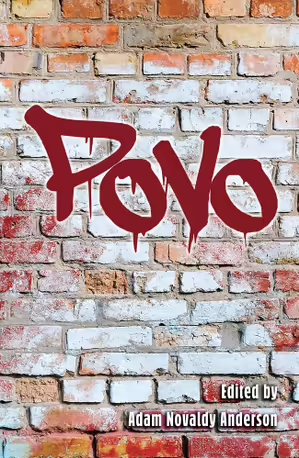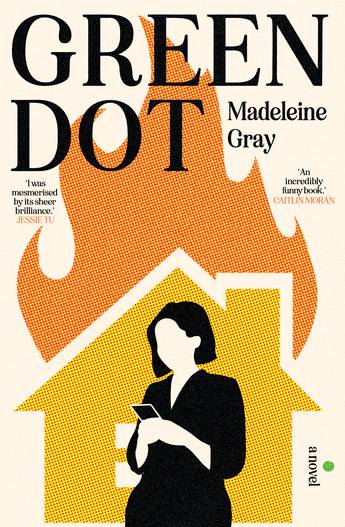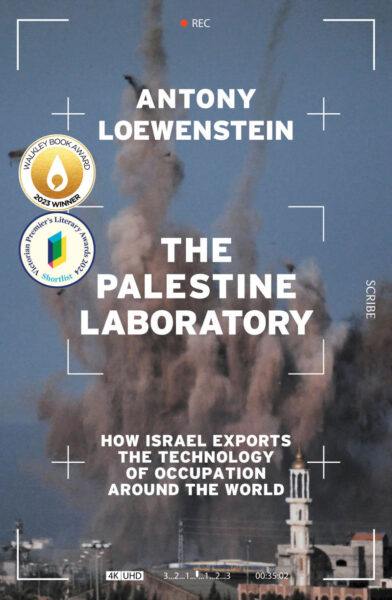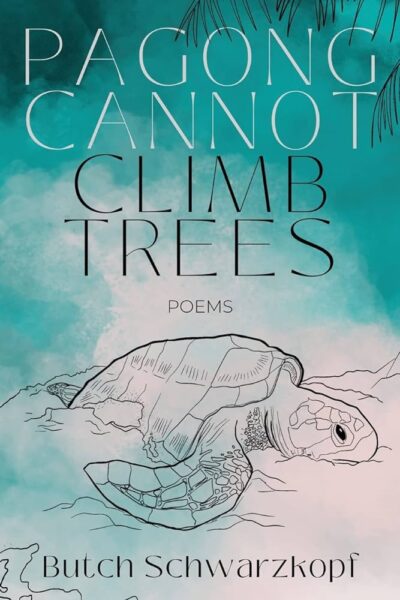Povo edited by Adam Novaldy Anderson
Sophie Groom, CEO

The new anthology from Sweatshop Literacy Movement, Povo, is a collection of pieces—some prose, some poetry, some attributed, some anonymous—about real life experiences in the lucky country.
In an incredible feat of editing, Adam Novaldy Anderson has selected a magnificent array of work from writers from First Nations, migrant and refugee backgrounds. Since most of the pieces only run to a few pages, the sense that you get while reading it is that every turn of a page reveals a great new find, whether it’s heartwarming, confronting or thought-provoking.
Povo features writers from The Asylum Seekers Centre, Leumeah High School and Macquarie Fields High School, amongst acclaimed writers like Leila Mansour, Natalia Figueroa Barroso and Adrian Mouhajer. With such a huge amount of talent packed into this slim volume it’s difficult to select favourites, but Daniel Nour’s funny and wry ‘How to Buy A Car’ and Katie Shammas’s achingly poignant ‘The Song that Fills the Valley’ are two of the many that are calling for a second reading.
Povo (2024, Sweatshop Literacy Movement)
Green Dot by Madeleine Gray
Rowena Tuziak, Program Manager

If you attend a book club or writing group, you’ve probably heard someone mention Green Dot by Madeleine Gray. It is the book of the moment. What is immediately striking about Green Dot is the book’s voice. Voice can be such an amorphous thing to explain, so if you’ve ever struggled with understanding voice, this is the book to read for its impressive execution.
Hera is a 24-year-old, reluctantly moving into adulthood and all its monotony. She is smug, fiercely intelligent, yet also naive. When she meets journalist Arthur, a middle-aged co-worker, her infatuation quells her inertia. For Hera, Arthur represents a version of adulthood that she can get behind. But Arthur is married, and through Hera we experience what it’s like to be ‘the other woman’.
Packed with pop culture references and wry humour, Green Dot is a sharp debut. I’ll be the first to admit, I’m probably not the target audience, but I can see why this book has made such an impact on the literary landscape.
The Palestine Laboratory by Anthony Lowenstein
Rochelle Pickles, Professional Development Officer

Over the holiday break I finished Anthony Lowenstein’s latest book, The Palestine Laboratory: How Israel Exports the Technology of Occupation Around the World, which recently won both the Walkley Book Award and the People’s Choice at the Victorian Premier’s Literary Awards.
After having grown up in a liberal Zionist home in Melbourne, ‘where support for Israel wasn’t a required religion but certainly expected’, Lowenstein began reporting on Israel/Palestine in the early 2000’s, first visiting the Middle East in 2005, and going on to live in East Jerusalem between 2016 and 2020. After over 20 years reporting from Palestine, Lowenstein’s views of Israel dramatically evolved to a place that he now says ‘mirrors the growing global awareness of what Israel has always been and where it’s headed’.
Through multiple interviews, analysis of secret documents and on-the ground-reporting, Lowenstein presents a case of a long history in Israel of exploiting Palestinian suffering and oppression for profit—both in Gaza and the West Bank—using the success of their exploits to sell weapons, surveillance, and combat techniques to multiple oppressive regimes around the world, as well as some seemingly democratic ones.
Lowenstein’s coverage of the sophistication of Israel’s surveillance, defence hardware and social media control—and the distribution of this technology around the world—makes for particularly interesting and chilling reading. I recommend this book to anyone interested in global politics, privacy and human rights, as well as those seeking to better understand the context of the ongoing and devastating assault on Gaza.
The Palestine Laboratory (2023, Scribe)
The Days Toppled Over by Vidya Madabushi & ‘Nails’ by Chloe Hillary
Nevenya Cameron, Administration Officer

The Days Toppled Over by Vidya Madabushi
This novel charmed me. When Malli, a woman with a disability living in India, doesn’t hear from her brother Surya, an international student in Sydney, she defies all barriers and crosses the world to find him. In Australia, visa pressures and exploitative work conditions make Surya’s life unstable. Madabushi shows us his daily realities, ‘it is his first day off in months. The rain has finally ceased. Through the gap left by the broken window slat, a thick stripe of turmeric sunshine is falling onto the carpet.’ The Days Toppled Over opened my heart to the experience of international students, so often ‘othered’ in Australian media discourse.
Madabushi has a skill for crafting authentic dialogue and warm-hearted characters. The novel’s slow pace creates an intimacy between the reader and characters as the mystery of Surya’s disappearance leads us on. The highlight of the book is its exploration of the systems which enable dishonest employers to exploit vulnerable migrants using the mirage of permanent residency. This novel is ideal for anyone interested in the experiences of those we invite to Australia to work and study, with Madabushi’s characters exposing the harsh reality of the dreams of so many.
‘Nails’ by Chloe Hillary (Overland Issue 252)
‘Nails’ by Chloe Hillary highlights similar experiences. ‘Nails’ is a beautifully-written short story centred upon a Vietnamese international student in Sydney. Hillary shows so much without needing to say much, using fog as a striking and resonant symbol throughout the piece. Hillary is very successful in achieving the ‘single effect’ of the short story, the technique proliferated by Edgar Allan Poe; the conclusion stuck with me for days. The resonances between these two texts have highlighted a complex issue impacting thousands of international students in Australia.
The Days Toppled Over (2023, Penguin)
‘Nails’ (Overland 252)
Pagong Cannot Climb Trees by Butch Schwarzkopf
Adara Enthaler, Project & Communications Officer

I saw Joseph “Butch” Schwarzkopf last year when he performed at the poetry slam that I host in Wollongong each month, and whilst reading his words on the page cannot compare to the tender, genuine live reading with which Butch gifted the audience that night, I of course had to buy his debut collection, Pagong Cannot Climb Trees.
In the poet bio that Butch provided for my slam, he included that “his biggest claim to fame is appearing in the background of Shang-Chi for 0.5 seconds”, and so I feel at liberty to quote another Marvel project; WandaVision:
“what is grief if not love perservering?”
Pagong Cannot Climb Trees is a swift, definitive expression of simultaneous love and grief: of loved ones lost, of culture stolen by colonisation, and of his wife through the poem ‘Greetings’, which he wrote for their wedding. Through English, Tagalog and Cebuano, this collection wades through the persistent and generations-long trauma of being a Filipinx descendent of colonised lands and a man of colour in so-called Australia, at times mourning the violence enacted upon ancestors and at others expressing an unshakeable connection to heritage.
Pagong Cannot Climb Trees (2022, Sampaguita Press)
More from Writing NSW
Check out our full range of in-person writing courses in Sydney, our online writing courses and our feedback programs to see how we can help you on your writing journey. Find out about our grants and prizes, as well as writing groups across NSW, and sign up to our weekly newsletter for writing events, opportunities and giveaways.
